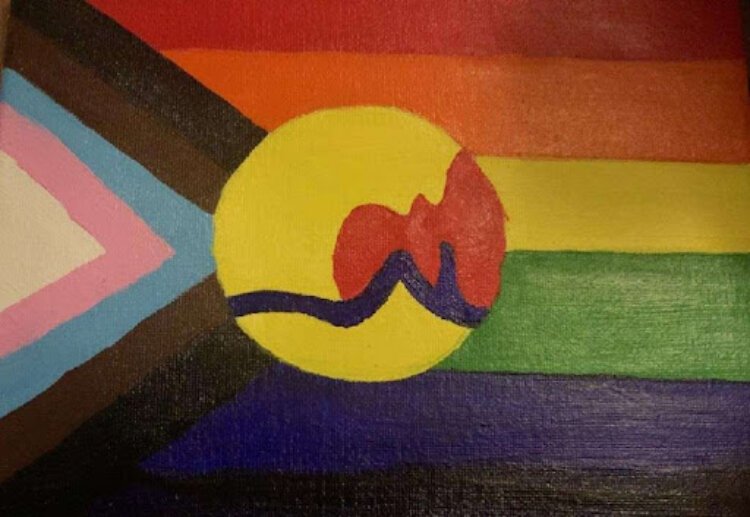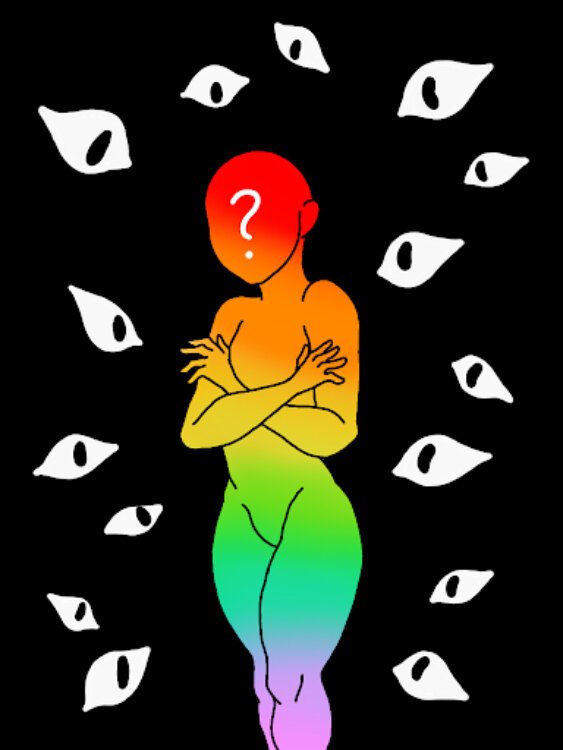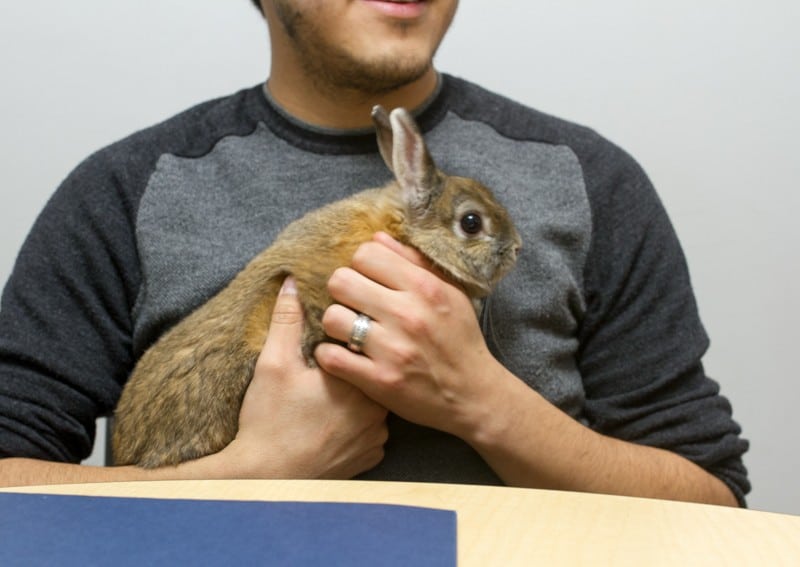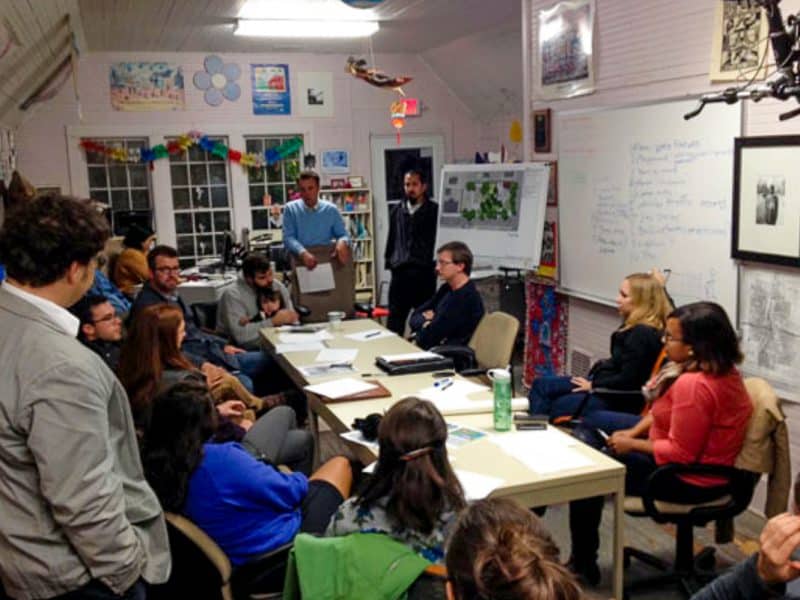When it comes to fighting for LGBTQ+ rights, Michigan is a leader
As LGTBQ+ legislation changes, lives are continuously affected. Two teens share their insights as members of the LGTBQ+ community, including challenges, advocacy and recent legal changes.
This article is part of Rapid Growth’s Voices of Youth series, which features content created by Kent County youth in partnership with Rapid Growth staff mentors, as well as feature stories by adult writers that examine issues of importance to local youth. In this installment, Michelle Litteral and Kayla Parks discuss LGTBQ+ legislation and youth perspectives.
The LGBTQ+ community has conquered many obstacles ever since the beginning of the Stonewall Riots from 1969. Despite the strength of the community, more threats have occurred from 2022 to the beginning of 2023.
Many of the issues that target the community come in various forms, such as anti-LGBTQ+ bills, imprisonment, denied jobs and housing, harassment and more. The goal of this article is to inform and show not only citizens of Grand Rapids, but the world, the reality of a LGBTQ+ person’s life.
Anti-LGBTQ+ and pro-LGBTQ+ bills
More than 417 anti-LGBTQ+ bills have been introduced in state legislatures since the beginning of 2023.
In 2022, over 90% of these bills were overpowered by the voices of the community and their supporters. Unfortunately, 10% of these bills were passed in states like Indiana, Texas, Florida and Mississippi.
Michigan has its fair share of anti-LGBTQ+ bills being introduced and previously, Michigan did not have any laws at the state level that protected the community. That could change, however. In March, Michigan Gov. Gretchen Whitmer signed legislation that expands on the Elliott-Larsen Civil Rights Act.
Leading up to Gov. Whitmer’s signature, a majority of Senate Republicans tried to argue against passing the bill, however, eight Senate Republicans did side with Democrats and voted to pass the bill.
“This has been a long journey of real people here who have suffered and people who have died waiting for this moment to come — we are taking this baton and running to the finish line,” Sen. Jeremy Moss told the press after the bill was passed.
LGBTQ+ youth and suicide rates
The suicide rate in teens and young adults has been increasing over the years, now placing No. 2 as the leading causes of death for youth.
These rates especially come from teens and youth who have a different sexual orientation or gender identity. Many LGBTQ+ youth struggle with harassment, bullying and cyberbullying from others in their environments — usually are students from their school and/or their own families. Compared to their cisgender and heterosexual peers, LGBTQ+ students are 2.3 times more likely to be threatened or injured with a weapon on school property.
LGBTQ+ students who are targeted by harassment and abuse are more likely to experience depression and anxiety, suffer from isolation and experience lower academic achievement and stunted educational aspirations.
In 2021, The Trevor Project observed suicide rates within LGBTQ+ youth and documented that nearly 1.8 million LGBTQ+ youth have considered suicide each year, making up 45% of the community. LGBTQ+ youth are also said to be four times more likely to attempt suicide than other youth.
These statistics had promoted concern for Michigan school boards to act in order to provide a safe exclusive place for LGBTQ+ youth. Groups such as the Gay Straight Alliance (GSA) and Gay, Lesbian & Straight Education Network (GLSEN) have been hosted in schools in order to provide LGBTQ+ students with acceptance & support for who they are as an individual.
Interviews with LGBTQ+ members
We interviewed two people who are a part of the LGBTQ+ community to see into their perspectives of what it’s like to live with their identities.
Nova (18), shares her experiences with us on the life of being pansexual and transgender.
Michelle Litteral (ML): What’s been good for you ever since coming out with your sexual orientation and/or gender identity?
Nova: Here in Grand Rapids, I enjoy how I’m able to be publicly open as trans in a supportive community. We have events like the Grand Rapids Pride Parade and the flags that are hung up throughout the city to represent us.
ML: What are some challenges you have faced as a LGBTQ+ person?
Nova: When openly coming out as trans and pansexual, I’ve run into problems that have drastically impacted my mental health. I would say the three main issues I ran into after coming out are social anxiety, issues with self worth and body dysmorphia. Over four years now, I’ve learned to cope with these issues. They are still recurrent but I’ve learned to still be open about myself and love myself the most I can.
ML: As a LGBTQ+ person, do you openly fight for your rights and the community’s rights?
Nova: Unfortunately, no, this is because of my social anxiety I developed when I came out as trans. As much as I believe in the rights of the LGBTQ+ community, I’m also aware of the harassment, assaults and hatred that occurs at protests for LGBTQ+ rights, which I don’t feel safe nor comfortable risking it.
ML: Michigan just released a law that will protect LGBTQ+ people from discrimination, what is your opinion on it and how does it make you feel?
Nova: Ever since I heard about this on the news, I’ve felt more safe and secure in my environment as being openly trans. I know there are others just like me out there who feel the same way as well and feel an achievement was accomplished once again by the LGBTQ+ community.
Montserrat (16), shares their experiences with us as being openly lesbian and gender-fluid.
Michelle Litteral (ML): What’s been good for you ever since coming out with your sexual orientation and/or gender identity?
Montserrat: Once I became comfortable being openly gay, I started to meet more people just like me. I met people who were bisexual, pan, etc., which was really comforting. I soon became more aware of my true identity from ninth to tenth grade, and currently have a partner who made me feel more open and comfortable with my sexuality.
ML: What are some challenges you have faced as a LGBTQ+ person?
Montserrat: When I came out as bisexual in sixth grade, I felt regret. I was constantly asked questions about my sexuality and even questions by my own friends if I had liked them just because I came out as bisexual, and I started to be mistreated by others. I also had come out to my family, who were unsupportive and didn’t accept me for who I am. It really hurt me to the point that I had lied to them and said I was no longer bisexual. It also made me really depressed for a while.
ML: As a LGBTQ+ person, do you openly fight for your rights and the community’s rights?
Montserrat: Whenever I get the chance, I talk about LGBTQ+ and the struggles the community has to deal with every day. I’ll talk about it whenever we have to do projects on discrimination in history or I’ll talk about it with my friends.
ML: Michigan just released a law that will protect LGBTQ+ people from discrimination, what is your opinion on it & how does it make you feel?
Montserrat: It makes me so happy to see that people are starting to acknowledge LGBTQ+ problems and want to help make a positive change for us.
The LGBTQ+ community struggles to maintain their place as a human being with biased views from the people who marginalized the community. LGBTQ+ people and youth are exposed to harassment, assault, stereotypes, poor mental health, etc., and these are realities that people with different sexual orientations and/or identities have to face in a world with bigoted societies. However, the more light that is shined on these realities, the more support the community receives to fight off prejudice they go through every day. Showing compassion toward those who are uniquely different from you is the greatest step that can be taken to create an accepting society for everyone. There is still a long war between the LGBTQ+ and prejudice, but the fight continues with the strength of determination and compassion.
To learn more about Rapid Growth’s Voices of Youth project and read other installments in the series, click here. This series is made possible via underwriting sponsorships from the Steelcase Foundation, Frey Foundation and Kent ISD.
Meet the Authors & Illustrators
Meet Kayla Parks, a student from Godfrey-Lee High School in Wyoming, Michigan. Kayla is an artist with amazing talent, making two of the paintings seen above. A part of the LGBTQ+ community herself, Kayla is a 15 year old who believes in fighting for the rights of the LGBTQ+ community and has collaborated with another student from Godfrey-Lee High School to make an incredible argument on the subject of why LGBTQ+ members in our society should be validated & accepted.
Meet Michelle Litteral, another student from Godfrey-Lee High School in Wyoming. Michigan. Michelle is a 16-year old artist and writer who collaborated with Kayla to inform others of the ongoing discrimination towards the LGBTQ+ community. As being a part of the LGBTQ+ community as well, they believe in validating their and others’ sexualities and/or gender identities. Michelle strives for a change soon to protect the LGBTQ+ community and more.











